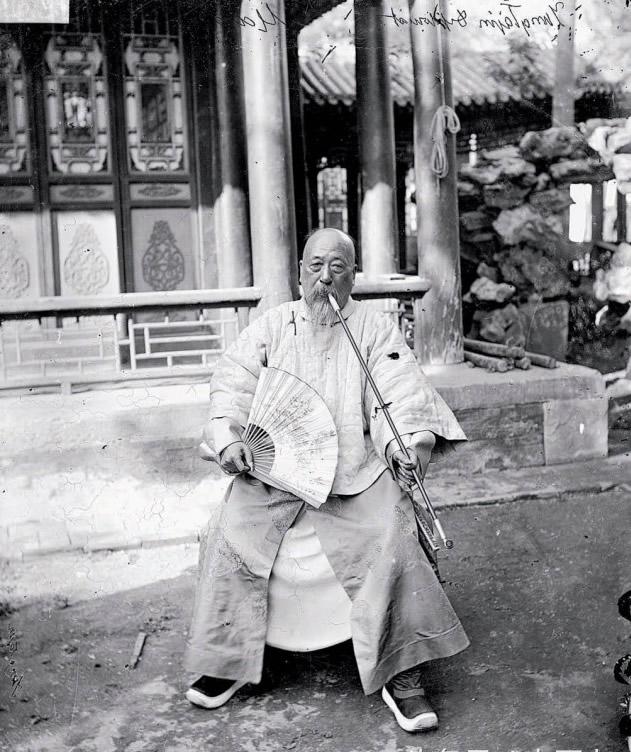In the late Qing Dynasty, Lin Shu did not understand foreign languages, but he was famous for translating Western novels throughout his life. His creative process relied on friendly translators who knew foreign languages, and then he changed it to a written language that conformed to Chinese expressions.
In fact, this translation mode has appeared in the late Qing Dynasty society more than 30 years before Lin Shu's translation activities.

In 1871, Hubu Shangshu Dong Ke.
Dong Ke (1807-1892), a native of Yangzhou, Jiangsu Province, lishi Daoguang, Xianfeng, Tongzhi, Guangxu four dynasties, official to the bingbu Shangshu, Hubu Shangshu, the prime minister plenipotentiary of the state affairs yamen.
Now everyone does not know much about Dong Ke as a person, but he left the first English-to-Chinese poem in the history of literature, which is still talked about today.
Dong Ke's subordinate Fang Maoshi recorded in the "Records of The Banana Xuan: Volume XII" that the British minister Wei Tuma intended to translate the American poet LangFerro's "Ode to Life", but his Chinese level was not high, and the translation sentences were rough, "with chapters and no rhymes".
From left to right: Shen Guifen, Dong Ke, Mao Changxi.
Therefore, Wei Tuoma took the poem to Dong Ke, who was then the prime minister of Yamen (Foreign Affairs), and told him the gist of "Ode to Life" and wanted to cooperate in translating it. Dong Ke felt that the main theme of the poem was positive and upward, and did not hinder Confucian righteousness, and gladly agreed.
With the help of Wittoma, after understanding the general meaning of each poem in the original work, Dong Ke rewrote it into seven sentences. In this way, a modern Western poem, translated into Chinese, becomes a rhyming rhythmic poem.
Dong Ke's translated poems have nine verses, each of which is a seven-sentence poem, neat and uniform, catchy to read, and full of rhythm.
British Minister Wittema.
Let's take verse 5 as an example and compare the original text of Longfellow with the translation of Dong Ke.
original:
In the world's broad field of battle,
In the bivouac of Life,
Be not like dumb, driven cattle!
Translation:
Disturb the red dust and listen to the drums, and the wind blows the desert grass. Donkeys are willing to be whipped, and who can be restrained.
Dong Ke's handwritten "Ode to Life" fanface.
Read it down and find something wrong? The translation is not faithful to the original text, but retains only the excitement of the attitude, which is tantamount to a new creation. Of course, in the initial stage of literary translation, we must tolerate defects and not be demanding.
After that, Dong Ke also had an air interaction with the original author, Lang Feiluo. He wrote his translation of "Ode to Life" on a fan with a brush and entrusted the US envoy to China, Pu Anchen, to present it to Longferro.
Portrait of the American poet Longfellow.
Longfellow received a fan, which he cherished, and wrote in his diary of October 30, 1865: "Invite Pu Anchen and his wife to dinner; get a Chinese fan, Zhi Xiye." The fan was donated by a Chinese official, and the Chinese book "Ode to Life" was used. ”
To this day, this fan is still treasured in The House of Longfellow.
"Small history" focuses on the overlooked, obscured details of well-known historical events. For more exciting content, please add the WeChat public account "Microhistory".